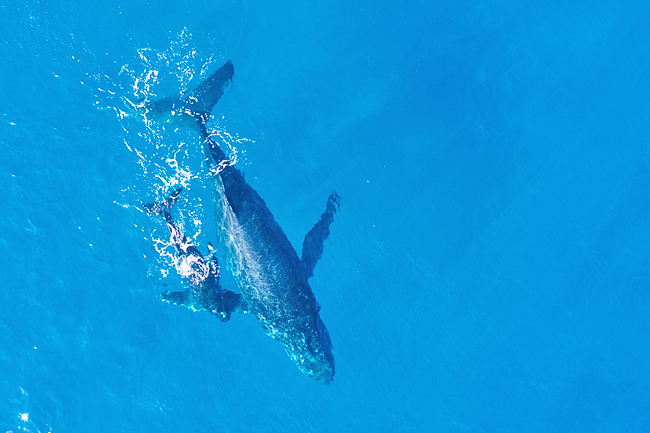THE WASHINGTON POST – Whales are majestic, intelligent beings that communicate over vast distances, form life-long bonds and occasionally get voiced by Meryl Streep. Sadly, one thing these marvelous creatures can’t do is absolve humans of their carbon sins.
A few years ago, a group of economists proposed that whale populations be treated as counterweights to pollution, much in the same way that supporting tree-planting allows individuals and businesses to cancel out their carbon emissions.
Recently their idea has manifested as the Whale Carbon Plus Project, a coalition including the Canadian government, looking for scalable, replicable methods to incentiviSe the monitoring and protection of whales.
Here’s the basic idea: Whales store a lot of carbon in their massive bodies. They also poop prodigiously, creating a food source for phytoplankton, which themselves collectively hold even vaster amounts of carbon.
And when whales die, their bodies sink to the ocean floor, trapping carbon in deep water for hundreds of years.
So protecting whales theoretically could be a way to capture carbon and fight global warming. Take this logic a step further, and paying to save the whales could technically be considered a form of carbon indulgence.

It slots perfectly into the growing class of water-based offset ideas known as blue carbon.
It’s an appealing concept when you lay it out this way, without considering the complexity of ocean systems, not to mention the moral implications of reducing sentient beings to entries on an earnings report. A lot of climate scientists and oceanographers aren’t buying it.
Earlier this year, before the Whale Carbon Plus Project hit the news, a few scientists published a paper about whale-based carbon storage as an April Fool’s joke.
Among other things, they called for returning to a whale-oil-based economy, an idea only a vengeful sea captain could love.
The fully serious Whale Carbon Plus Project doesn’t go that far.
But when one of the prank paper’s co-authors, climate scientist Zeke Hausfather, saw a write-up of the carbon-offset scheme, he felt compelled to remind everybody he considered the idea a joke in every sense of the word.
“We should be protecting and replenishing whales,” Hausfather said in an interview, “not for carbon benefits but because they play important roles in the ecosystem and have a right to exist independent of any need they serve for humans.”
The first problem with the idea of whale offsets is what’s known in climate jargon as ‘additionality.’
How can you be sure the whale you see frolicking off Long Island owes its life strictly to a carbon indulgence purchased by Acme Defilement Co? Without establishing giant whale hatcheries we can never be sure.
The Whale Carbon Plus Project says it will use planes and satellites to track whale and phytoplankton populations to back up its carbon-credit numbers.
But this merely solves a whale-counting problem, not a whale-origin problem.
It raises similar questions as the tree planting at the heart of forestry-based offsets that studies have shown consistently promise far more carbon absolution than they actually deliver.
That’s because they often give logging companies credit for tree-management practices they had long been doing anyway.
Whales have an even longer track record of existing. – Mark Gongloff




